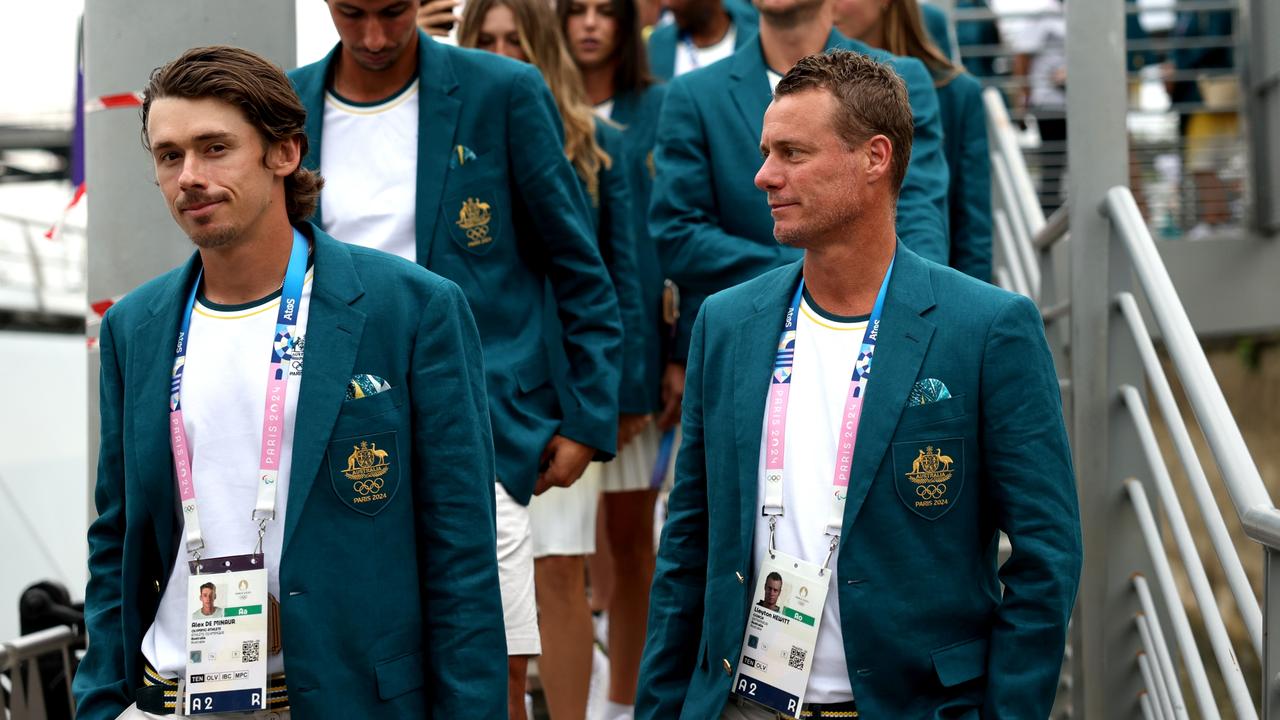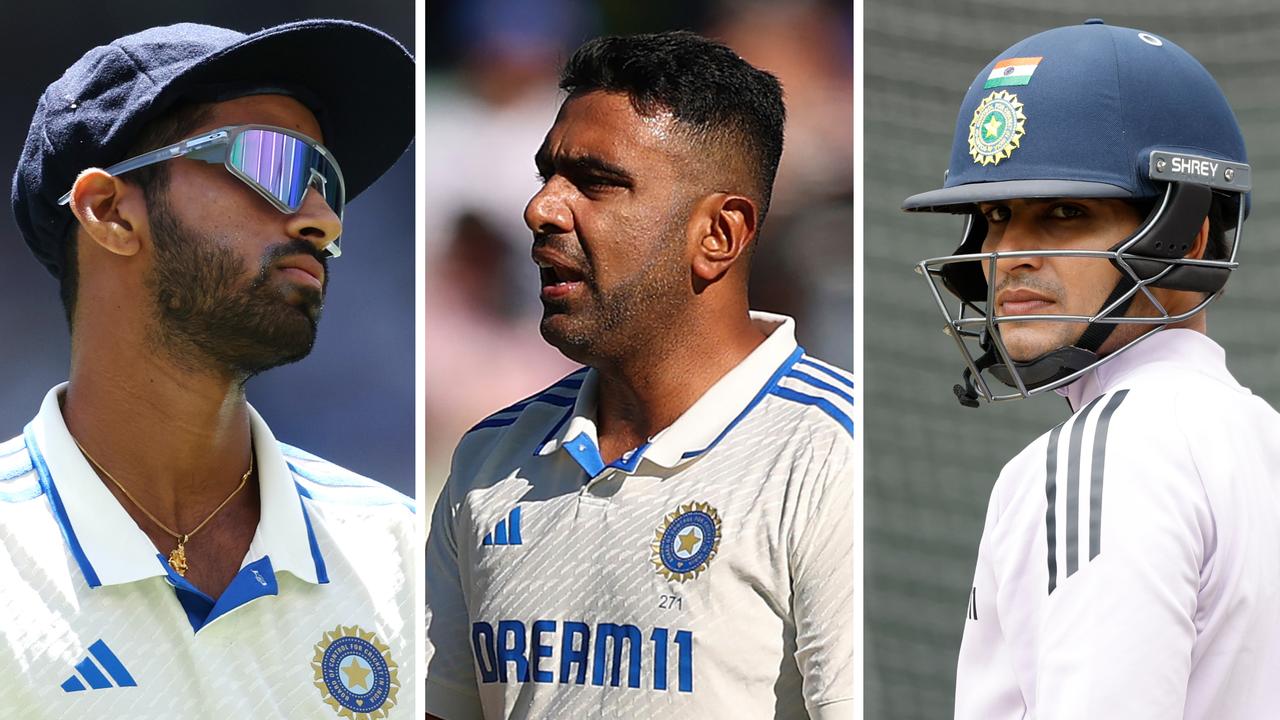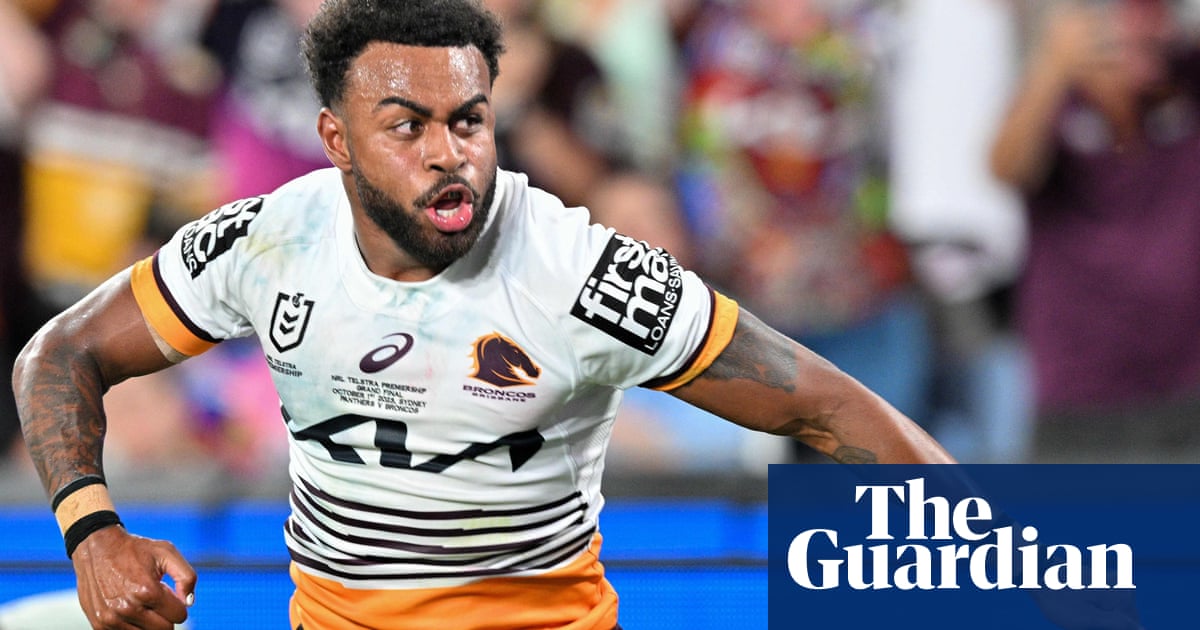‘I lost control’: Greek star breaks ties with dad after epic spray; Demon’s top-10 spot at risk

- by Admin
- August 10, 2024

The hip injury that cruelled Alex de Minaur’s Wimbledon campaign at an inopportune time and derailed his Olympics ambitions has now imperilled his hold on a top 10 ranking leading into the US Open later this month.
The Australian star, who reached back-to-back quarterfinals at Roland Garros and Wimbledon, has not played a singles match since forfeiting a quarterfinal clash against Novak Djokovic at the All England Lawn Tennis Club in July.
The 25-year-old, who peaked at No.6, injured part of the hip muscle attached to the abdomen on the third last point in his 4th Rd win over Arthur Fils, a subsequent ATP Tour title winner over Roland Garros finalist Alexander Zverev.
Amid reports de Minaur has withdrawn from the Cincinnati Masters as he continues to recover from the hip injury, the Sydneysider currently sits at No. 10 on a live basis and could be jumped this weekend.
American Taylor Fritz has the chance to knock the popular Australian out of the top 10 if he fares well over the weekend in the Montreal Masters, which is dealing with the backwash from Hurricane Debby and is well behind schedule as a result.
Thanasi Kokkinakis is yet to play his second round match against world No.6 Hubert Hurkacz in an event where de Minaur was a finalist last year when beaten by Jannik Sinner.
It is set to be a mad scramble on Saturday in Quebec, with the winner of the clash between Kokkinakis and Hurkacz then scheduled to play a Rd of 16 match that evening.
Other contenders in the rain-riddled tournament will play both Rd of 16 matches and quarterfinals on Saturday, should the weather clear, before doubling-up again on Sunday.
Alexei Popyrin, who upset American star Ben Shelton in the second round, will play Grigor Dimitrov for a spot in the quarterfinals.
De Minaur, meanwhile, is dealing with the negative of being sidelined during a period where he enjoyed good success a year ago.
A devastated de Minaur said at Wimbledon he would require between three to six weeks off the tour, a time frame which extended through to the start of the US Open later this month.
The nine-time ATP Tour title winner raced against time to be fit for the Olympics but, after marching in the Opening Ceremony, was only able to play one doubles match with Popyrin.
He has been unable to defend the 750 points he earned for reaching finals in Los Cabos and Montreal last year and, should he miss Cincinnati, will drop another 45 rankings points. He earned 180 ranking points for reaching the 4th Rd of the US Open last year.
But the right-hander posted a photograph of himself training with former top-10 ranked Serbian Janko Tipsarevic and promising junior Amir Omarkhanov on Friday as he bids to be fit to contend at the US Open, where he was a quarterfinalist back in 2020.
Although he has slid a couple of positions to seventh in the season race, de Minaur remains in a good position to play in the ATP Tour Finals in November for the first time in his career.
Elsewhere, Stefanos Ttitsipas, who defeated de Minaur in Los Cabos, has confirmed that he will no longer be coached by his father Apostolos following a furore after his loss to Kei Nishikori in Canada.
The dual-grand slam finalist was heavily critical of his dad after the defeat and moved to end a coaching partnership that has endured its share of controversial moments, with Australian Mark Philippoussis among those tried in conjunction with the Tsitsipas team.
In a lengthy social media post, the Australian Open and Roland Garros finalist expressed regret for his behaviour in Canada and conceded he had lost control after repressing his emotions.
“It is with a heavy heart that l inform you that my collaboration with my father as a coach has come to an end. I prefer to keep my father in his role as a father, and only as a father,” Tsitsipas said.
“Philosophy teaches us that wisdom comes through understanding our limits and acknowledging our mistakes. In my case, I realised that I was wrong to talk to my father the way I did.
“Tennis is not just a match, a hit or a performance of a few seconds. It is a long journey full of emotions, pressure and expectations. In that moment of frustration, there were many mistakes and errors on the part of my coach and father.
“As an introvert, I tend to hold in my emotions and build them up until I reach a bursting point. I consider myself patient, so the fact that I reacted this way left me shocked.
“My behaviour on the (court) was unacceptable, and I feel disappointed that I got to a point where I showed a dark side of myself. When I feel disrespected, judged, or emotionally attacked, I tend to lose control of what comes out of my mouth, which goes against my values as a human being. I lost control and could not see clearly in front of me.”
The Latest News
-
December 26, 2024Cricket: Australia’s Kostas gets better of India on debut
-
December 26, 2024Konstas, Kohli mid-pitch shoulder bump under microscope | cricket.com.au
-
December 26, 2024‘Clown behaviour’: Kohli blasted for ‘pathetic’ exchange
-
December 26, 2024Sports News Today Live Updates on December 26, 2024: India vs Australia BGT 2024-25: Sam Konstas shocks India with his remarkable debut | Watch
-
December 26, 2024‘I think he’s in trouble’: Kohli under fire over ‘ridiculous’ clash with Aussie teen as ban looms




